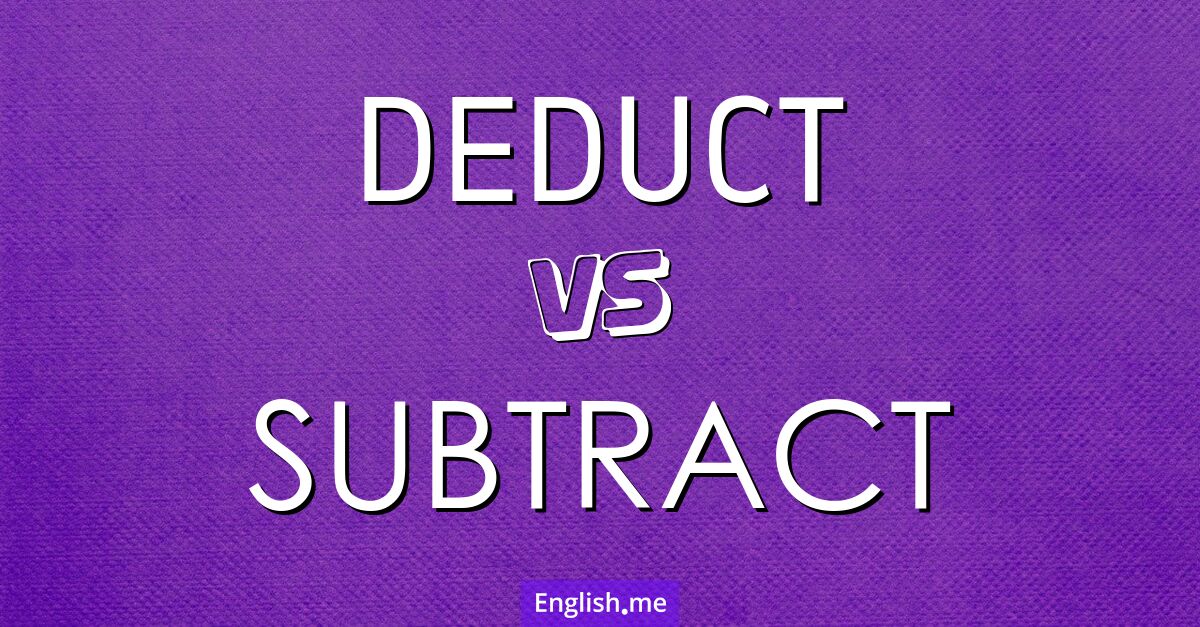Decoding "deduct" vs. "subtract": twins or just cousins?
Reviewed and edited by  Lloyd Cooper 06/10/2024, 04:41
Lloyd Cooper 06/10/2024, 04:41
English.me team member

 What is similar?
What is similar?
Both "deduct" and "subtract" refer to the process of taking away or reducing an amount from a total. They are often used in mathematical or financial contexts to denote the operation of removal or deduction.
 What is different?
What is different?
While "subtract" is generally used in mathematical contexts to describe the basic arithmetic operation of taking one number away from another, "deduct" is more frequently used in financial or accounting contexts, often relating to expenses or amounts being removed from a total amount, such as deductions from a salary or income.
 Which one is more common?
Which one is more common?

 Examples of usage
Examples of usage
Deduct- You can deduct your travel expenses when filing your tax return.
- The insurance will deduct the deductible amount before reimbursing the claim.
- After deducting the service fee, the remaining balance was transferred to your account.
- If you subtract 5 from 10, you get 5.
- The software allows you to easily subtract columns of numbers.
- When you subtract the cost of goods sold, you can determine your gross profit.

 English
English español
español française
française italiano
italiano deutsche
deutsche 日本語
日本語 polski
polski česky
česky svenska
svenska Türkçe
Türkçe Nederlands
Nederlands